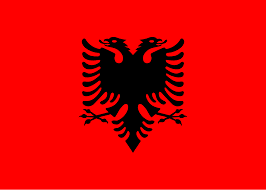
Albania’s education system has undergone steady transformation over the past three decades, with significant reforms aimed at modernizing curricula, improving quality, and aligning qualifications with European standards. For institutions, credential evaluators, and licensing bodies reviewing Albanian academic records, a clear understanding of the country’s educational structure is essential. Here are the top ten facts that define Albania’s education landscape today.
- A Unified 9-Year Basic Education Cycle
Albania follows a “5 + 4” model of compulsory basic education: five years of primary and four years of lower secondary school. This nine-year cycle is mandatory for all students and provides foundational skills in language, mathematics, science, arts, and civic development. - Upper Secondary Includes Both General and Vocational Tracks
Following basic education, students may enter general secondary school (gimnaz) for three years or pursue vocational secondary programs lasting two to four years. In recent years, Albania has broadened vocational options to strengthen technical skills aligned with labor-market needs. - National Matura Examination for University Admission
Graduation from upper secondary school requires passing the State Matura (Matura Shtetërore), a standardized national exam introduced in 2006. Matura results serve as the primary criterion for university admission and are essential documents in international credential evaluations. - Alignment With the Bologna Process
Since joining the Bologna Process in 2003, Albania has fully adopted the European three-cycle degree structure: Bachelor, Master, and Doctorate. This alignment improves international comparability and supports broader recognition of Albanian degrees. - Bachelor’s Degrees Require 180 ECTS
Most first-cycle university programs award a Bachelor’s degree after three years of study and the completion of 180 ECTS credits. Professional Bachelor programs, which are shorter and more practice-oriented, have been introduced to meet evolving industry needs. - Two Types of Master’s Degrees
Albania distinguishes between the “Master of Science” (MSc), a research-oriented degree requiring 120 ECTS, and the “Professional Master,” typically requiring 60–90 ECTS with a focus on applied professional training. - Public and Private Universities Under a Single Accreditation Framework
All higher education institutions—public and private—are governed by the same accreditation system and evaluated by the Quality Assurance Agency in Higher Education (ASCAL). Institutional and program-level accreditation supports transparency and consistency in quality. - Increasing Emphasis on Digitalization
Albania has implemented digital learning tools, electronic gradebooks, and online administrative systems across schools and universities. This is part of a broader national effort to strengthen digital infrastructure and elevate technological literacy. - Expansion of Multilingual Education
While Albanian is the official language of instruction, bilingual and multilingual programs (especially in English, Italian, and Greek) have expanded. International schools and foreign university branches—particularly in Tirana—are growing in number. - Rising International Student Mobility
Participation in Erasmus+ and other mobility programs continues to increase, strengthening ties with European institutions and enhancing the global visibility of Albanian qualifications.
Albania’s education system is dynamic, evolving, and increasingly aligned with European standards, making qualified credential evaluation essential for accurate academic and professional recognition.
References:
European Higher Education Area (EHEA). “Albania.” EHEA – European Higher Education Area.
https://ehea.info/page-albania
OECD – Organisation for Economic Co-operation and Development. OECD Reviews of Evaluation and Assessment in Education: Albania. Paris: OECD Publishing, 2020.
https://www.oecd.org/en/publications/oecd-reviews-of-evaluation-and-assessment-in-education-albania_d267dc93-en.html
Trade.gov – U.S. Department of Commerce. “Albania – Education.” Country Commercial Guides.
https://www.trade.gov/country-commercial-guides/albania-education
Wikipedia. “Matura Shtetërore (State Matura).”
https://en.wikipedia.org/wiki/Matura_Shtet%C3%ABrore
WorldData. “Education System in Albania.”
https://www.worlddata.info/europe/albania/education.php
#ACEI #AlbaniaEducation #HigherEdReform #CredentialEvaluation #AcademicRecognition #GlobalEducationStandards #InternationalAdmissions

The Academic Credentials Evaluation Institute, Inc. (ACEI), was founded in 1994 and is based in Los Angeles, CA, USA. ACEI is a full-service company providing complete and integrated services in the areas of international education research, credential evaluation, training and consultancy. https://acei-global.org/
